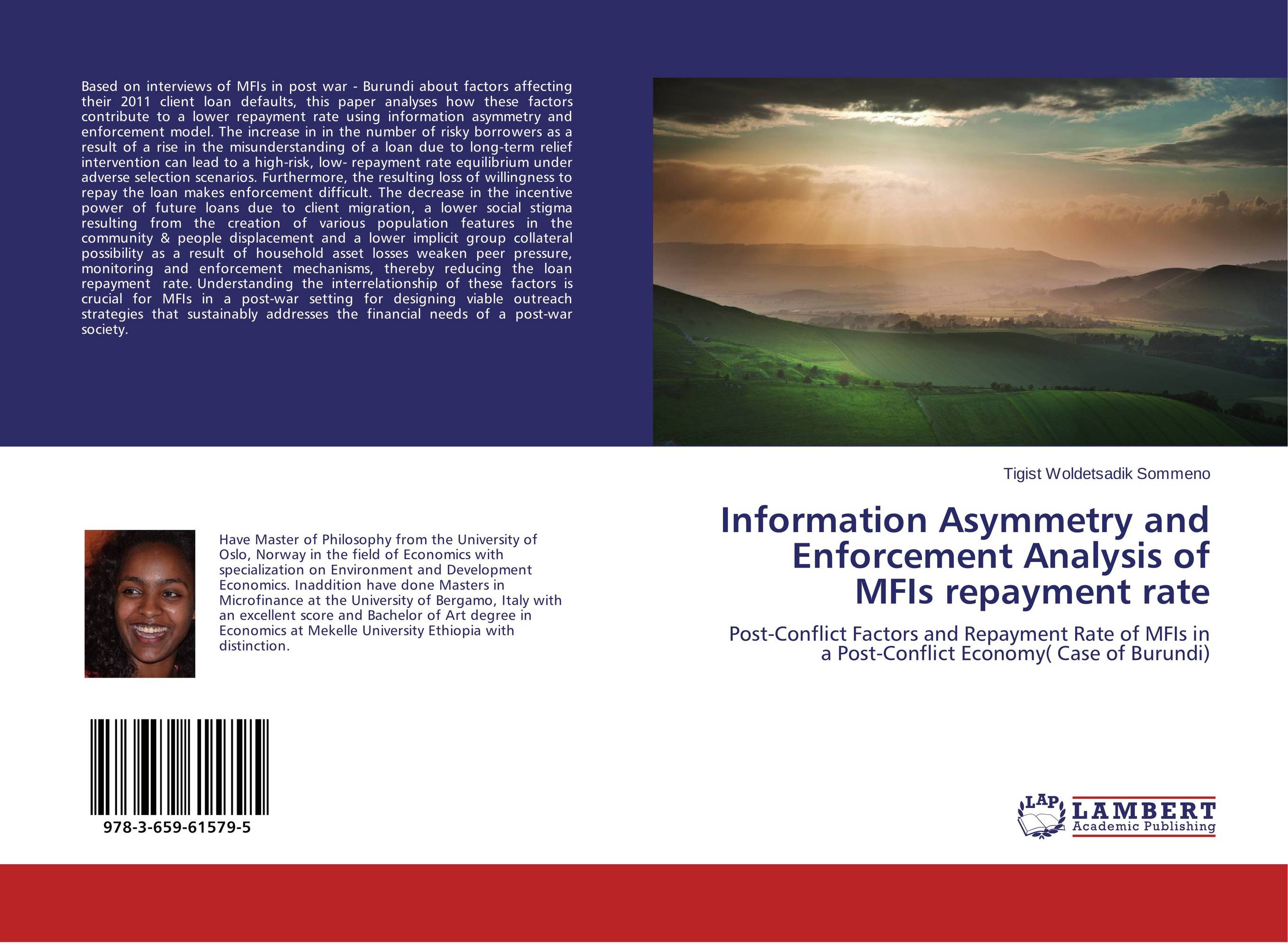| Поиск по каталогу |
|
(строгое соответствие)
|
- Профессиональная
- Научно-популярная
- Художественная
- Публицистика
- Детская
- Искусство
- Хобби, семья, дом
- Спорт
- Путеводители
- Блокноты, тетради, открытки
Information Asymmetry and Enforcement Analysis of MFIs repayment rate. Post-Conflict Factors and Repayment Rate of MFIs in a Post-Conflict Economy( Case of Burundi)

В наличии
| Местонахождение: Алматы | Состояние экземпляра: новый |

Бумажная
версия
версия
Автор: Tigist Woldetsadik Sommeno
ISBN: 9783659615795
Год издания: 2014
Формат книги: 60×90/16 (145×215 мм)
Количество страниц: 68
Издательство: LAP LAMBERT Academic Publishing
Цена: 23493 тг
Положить в корзину
Позиции в рубрикаторе
Сферы деятельности:Код товара: 140080
| Способы доставки в город Алматы * комплектация (срок до отгрузки) не более 2 рабочих дней |
| Самовывоз из города Алматы (пункты самовывоза партнёра CDEK) |
| Курьерская доставка CDEK из города Москва |
| Доставка Почтой России из города Москва |
Аннотация: Based on interviews of MFIs in post war - Burundi about factors affecting their 2011 client loan defaults, this paper analyses how these factors contribute to a lower repayment rate using information asymmetry and enforcement model. The increase in in the number of risky borrowers as a result of a rise in the misunderstanding of a loan due to long-term relief intervention can lead to a high-risk, low- repayment rate equilibrium under adverse selection scenarios. Furthermore, the resulting loss of willingness to repay the loan makes enforcement difficult. The decrease in the incentive power of future loans due to client migration, a lower social stigma resulting from the creation of various population features in the community & people displacement and a lower implicit group collateral possibility as a result of household asset losses weaken peer pressure, monitoring and enforcement mechanisms, thereby reducing the loan repayment rate. Understanding the interrelationship of these factors is crucial for MFIs in a post-war setting for designing viable outreach strategies that sustainably addresses the financial needs of a post-war society.
Ключевые слова: Information asymmetry



